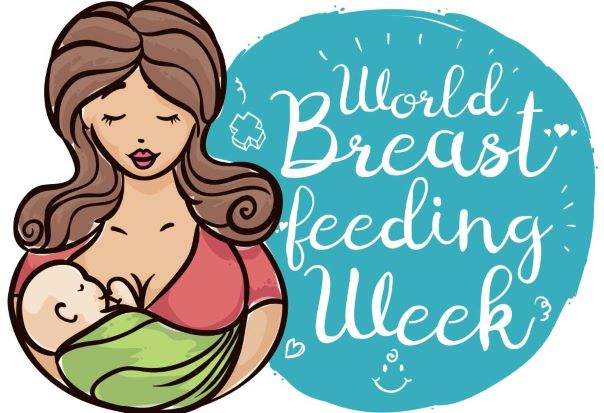Monrovia- As the Liberian government and partners will today, August 19, 2021 launch the world breastfeeding week, families and stakeholders are being called upon to ensure that mothers get the protection and support by encouraging them to give their babies the best start in life.
In Liberia, five out of every 10 babies receive plain water, other liquids, and food, in addition to breastmilk during their first six months of life, which affects their health and contributes to child malnutrition and illnesses, says a UNICEF press release.
“Having a comprehensive national strategy that protects, promotes and supports breastfeeding is the most effective way to influence the environmental, social, economic and behavioral factors that influence a mother’s decision to feed a child breastmilk only in the first six months of life,” said Dr. Wilhelmina Jallah, Minister of Health in Liberia.
According to the Liberia Demographic and Health Survey 2019 -2020, one out of every three children in Liberia suffer from chronic malnutrition, that means that too many children suffer from stunted growth, or and the unsuspected hunger which is the lack of essential vitamins and minerals.
“Breastmilk is a pure gift; it is a baby’s first vaccine and best source of nutrients. Promoting, protecting, and supporting mothers to give breastmilk only, without water, for the first six months of life requires encouragement and support from family members, health care providers, employers, policymakers and the whole communities,” said Laila O. Gad, UNICEF Representative in Liberia. “Together, we can make a difference.”
For babies under six months to stay healthy, scientific evidence recommends giving them breastmilk only and on demand (day and night). No water, liquids or food should be given from the moment of birth until they reach six months of age. Even if it is a hot and dry climate, breastmilk contains all the water and nutrients a baby needs to grow well.
Recent studies in low and middle-income countries reveal that babies who receive liquids and food in addition to breastmilk before six months of age are at greater risk of diarrhoea and respiratory infections. They are almost three times more at risk of dying than those who are exclusively breastfed.
Breastfeeding also has significant benefits for mothers by hastening recovery after childbirth, delaying the return of the menstrual cycle thus helping with birth spacing, and reducing the risk of cancer.
In Liberia the costs of not breastfeeding are enormous. In addition to thousands of preventable deaths of children, it costs the country annually around US$200,000 to treat children with diarrhoea and pneumonia and type two diabetes among mothers who visit health facilities due to inadequate breastfeeding. Liberia stands to lose more than US$14 million a year due to future cognitive losses associated with not breastfeeding.
The breastfeeding week celebration aims to catalyze much-needed policy, social, institutional, community and family dialogue and change towards improving breastfeeding rates in Liberia. It calls on governments, partners, and businesses in Liberia to act and position exclusive breastfeeding as a public health priority to improve the health and prosperity of children and nations.
“Breastfeeding is a team effort, governments, families, religious and community leaders, need to continue to advocate for increased maternity and respect for breastfeeding by employers, including those in the private sector, and for the establishment of clean and secure spaces near workplaces where breastfeeding mothers can breastfeed,” added Ms. Gad.
BACKGROUND
- A 2019 poll conducted by UNICEF in 10 countries in West and Central Africa revealed that in Liberia 56 per cent of youth incorrectly believe that babies need water in the first six months of life.
- 46 per cent of respondents thought that babies should be given something in addition to breastmilk to grow strong and healthy.
- During the COVID-19 pandemic 71 per cent of the same youth incorrectly believe that mothers who think they have COVID-19 should NOT continue breastfeeding.
- Stunting is irreversible and negatively affects a child’s brain function, organ development, and immune system, which can then result in poor achievement at school, decreased productivity and earnings in adult life, greater risk of developing obesity and diabetes later in life, and ultimately, diminished chances of escaping the cycle of poverty.

